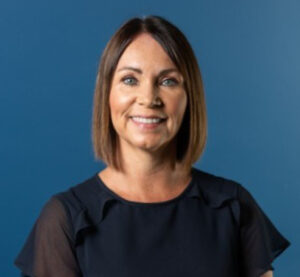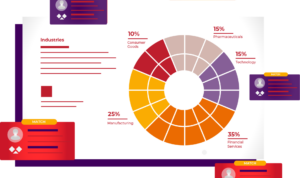An analysis of the FTSE 100 and FTSE 250 executive and non-executive board appointments in Q2 2021
INTRODUCTION
 The UK economy sprung back to life in the second quarter as the government’s phased reopening plan saw the return of non-essential retail and outdoor hospitality in April followed by indoor hospitality and some events in May. Though England’s so-called ‘Freedom Day’, removing all remaining legal restrictions, was delayed by four weeks, pushing it into Q3, it didn’t blight the growing optimism among UK businesses, which for many has been brewing since Q1.
The UK economy sprung back to life in the second quarter as the government’s phased reopening plan saw the return of non-essential retail and outdoor hospitality in April followed by indoor hospitality and some events in May. Though England’s so-called ‘Freedom Day’, removing all remaining legal restrictions, was delayed by four weeks, pushing it into Q3, it didn’t blight the growing optimism among UK businesses, which for many has been brewing since Q1.
They have much to be optimistic about, not least the IMF’s recent validation that our economy is rebounding much faster than expected. Along with the US, Britain will grow 8 per cent this year, which is faster than any other advanced economy globally, according to the IMF, and an upgrade on its earlier forecast of 5.3 per cent just a few months ago. Bolstered by its rapid vaccine rollout and strong state support during the pandemic, the IMF anticipates the UK will return to pre-pandemic levels by early 2022, a year in which it will grow by a further 4.8 per cent.
Regular readers will recall the optimism was already reflected in a spectacular start to the year in terms of board activity, with a 32 per cent year-on-year uplift in FTSE 250 appointments in Q1 and a 39 per cent surge in FTSE 100 appointments. If the trend continued, I noted, we were in for a buoyant year. Having crunched the data from Q2, however, the results are more mixed.
Fiona Motley
Partner, Board Practice and Head of HR Practice

Q2 2021
LEVELLING OFF
In essence, it’s a tale of two halves, amounting to an overall levelling off from the spike in board appointments seen in Q1. In the FTSE 100, appointments remained strong in Q2, pipping Q1’s total of 51 by two and recording a 26% increase on Q2 2019, though a 5% year-on-year drop.
Broken down, we witnessed a highly active quarter of ED appointments, with the 10 announced nearly three times that of Q1 2021, a 25% year-on-year increase and almost four times that of the same quarter in 2019. Activity among NED appointments in the FTSE 100, however, was less noteworthy; 9% down on the last quarter, 12% down on Q2 2020 and 10% down on Q2 2019.
In the FTSE 250, it was a different story altogether, with activity considerably down across both ED and NED appointments. Overall, the 67 board appointments in the FTSE 250 through the quarter just gone was 24% lower than the previous quarter, 3% up on Q2 2020 and a 14% drop from Q2 2019. Though NED activity contributed to the decline, the lowest activity was among ED appointments, which were 56% down on the last quarter and 65% year on year.
The contrast between FTSE 100 and FTSE 250 appointments is an interesting dynamic to observe. An obvious conclusion to make is the larger, more globally-oriented companies in the FTSE 100 are boldly adjusting their personnel holding crucial executive posts as they seek to reposition the company for a period of growth. But could the smaller, more domestically-focused FTSE 250 businesses be seeking to stabilise board representation, both among ED and NED positions, as uncertainty continues to prevail through the year? Given the highly active start to the year across the FTSE 350, we must not also ignore the stronger likelihood of recalibration.
NOTABLE APPOINTMENTS
Delving deeper into the 10 executive director appointments in the FTSE 100 through the Q2 2021 period, there are several of particular note. Seven were CFO appointments, including Imran Nawaz, who joined Tesco from Tate & Lyle, ex-Deloitte partner Panos Kakoullis at Rolls-Royce, and ex-KPMG partner Stephen Oxley at chemicals firm Johnson Matthey. Vanessa Simms, the only female on the list, joined property developer Land Securities Group from Grainger, while Peter Cunningham’s interim CFO role at Rio Tinto was made permanent.
There were two FTSE 100 chief executive appointments in the quarter, with Royal Mail appointing Martin Seidenberg to head up GLS, its European parcels business, and Paul Keel taking over as boss of engineering company Smiths Group following 16 years at 3M.
In a busy quarter for Tesco, the UK’s biggest supermarket chain also made three NED appointments in Karen Whitworth, a former Sainsbury’s executive, Kingfisher chief executive Thierry Garnier and Bertrand Bodson, a former chief digital and marketing officer at Sainsbury’s Argos. Mining firm Evraz, insurance firm Prudential, packaging group Mondi and investment company Pershing Square Holdings joined the club in each also appointing three new NEDs.
Elsewhere, other notable NED appointments in the FTSE 100 included tech entrepreneur Ewan Kirk at defence giant BAE Systems, Schneider Electric CFO Hilary Maxson at Anglo American, physician and healthcare entrepreneur Anne Beal at GSK and former Bupa boss Evelyn Bourke at Admiral Group. Julia Wilson, group finance director at PE firm 3i Group, joined Barclays.
The seven ED appointments in the FTSE 250 were all CFOs. Among them, Nigel Crossley was promoted from group director of finance at Serco, following Angus Cockburn’s retirement, and Neil Manser was promoted at Direct Line. Simon Kirkpatrick joined Mitie from Balfour Beatty while UK outsourcer Capita announced its new CFO is Tim Weller, former finance chief of G4S.
There were no female ED appointments in the FTSE 250, a point I will come onto shortly, and fewer female NED appointments, just 32, than we’ve come to expect too. Among the latter were Mars Food global president Fiona Dawson at Marks & Spencer, Yell CEO Claire Miles at Biffa, transportation veteran Carolyn Flowers at National Express and Vodafone director Kathy-Ann Quashie at Morgan Sindall. Nicky Newton-King, the first female CEO of the Johannesburg Stock Exchange, joined Investec, and Google exec Rachael Palmer joined the board at Baillie Gifford.
Of the 12 new chair appointments in the FTSE 250, which included NED chair Mark Breuer at Derwent, none were women. There was one female chair appointment in the FTSE 100, however, with Paula Reynolds becoming the first female chair of National Grid. Other FTSE 100 chair appointments included former MasterCard chair Rick Haythornthwaite at Ocado and ex Cabinet Office Permanent Secretary John Manzoni at SSE.
GENDER REPRESENTATION
As already alluded to, female representation among executive director appointments in both the FTSE 100 and FTSE 250 was disappointingly low in the second quarter of 2021. The huge lack of female executive appointments, in comparison to female NED appointments, is something we have highlighted regularly through our reports. While we hope the data from Q2 2021 is only a blip, it is concerning that the lack of FTSE executive diversity shows very little sign of improving.
The Financial Conduct Authority (FCA) would appear to share these concerns. The regulator has revealed new proposals to mandate public companies with fewer than two female directors out of five to explain why to investors in an annual statement. Under the new rules, the FCA wants at least one of the posts of chairman, CEO, finance director or senior independent director to be held by a woman, while further proposed changes to the listings regime would require companies to also have at least one director from an ethnic minority background.
Though these proposals are still only under consultation, they will no doubt have grabbed the attention of PLC boards. At Savannah, we believe that diversity at all levels of organisations, but particularly executive leadership, is crucial to maximising value for all stakeholders. While some board directors will disagree with the FCA’s proposed “comply or explain” rules, it may be the impetus required to accelerate the very slow progress being made in executive PLC diversity.
The concerns in recent months that gender diversity progress has stalled is reflected in our data, at least at executive level. Sir Philip Hampton, who co-authored the Hampton review of women on boards, said: “Great progress has been made in non-executive roles so it’s now most important to see diversity in senior executive positions. Top executives on public company boards are very male and white.” Companies mustn’t forget the complaints in Sir John Parker’s official review last year of the slow progress on representation of ethnic minorities, either.
It should be reiterated that female representation at NED level has improved dramatically in recent years, and continued to hold firm in the second quarter of 2021. There were 22 female NED appointments in the FTSE 100, compared to 21 male appointments, and 32 female NED appointments in the FTSE 250, compared to 28 male. But it’s important that companies don’t claim they have diverse leadership when their female executive representation is still poor.
As with all of our reports, our primary source is BoardEx and we edit the raw data to exclude, for example, internal promotions such as NED to SID and non-independent shareholder employee appointments. We prepare these reports as a contribution to the corporate governance debate which we are always happy to engage on. I hope you find this report interesting and relevant.




